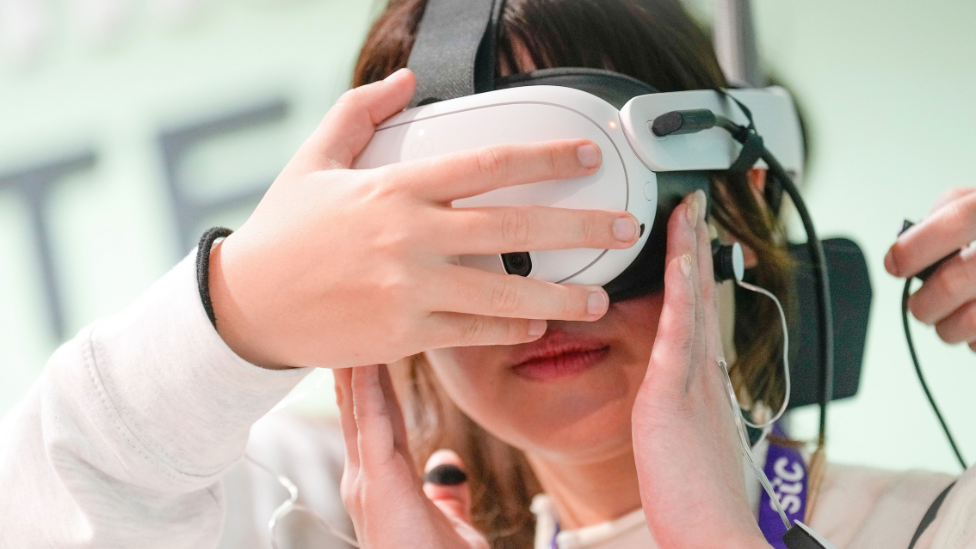Cambridge VR research detects early Alzheimer's risk
- Published

The study has been published in Alzheimer's and Dementia: The Journal of the Alzheimer's Association
Virtual reality (VR) technology has been used to detect the early warning signs of Alzheimer's.
Work at the University of Cambridge investigated if those at risk of the disease had a poor sense of direction or impairments in spatial navigation.
Participants were asked to navigate a virtual environment while wearing VR headsets.
Findings, external showed impairments in spatial navigation, which may develop years or decades before any other symptoms.
About 100 asymptomatic adults, aged 43 to 66, used VR to determine and maintain a route from one place to another.
'Accurate diagnosis'
Researchers observed impairments in men but not women.
It is hoped the results will help develop a diagnostic clinical decision support tool for the NHS.
The study, external was led by Prof Dennis Chan, and used a test designed by Dr Andrea Castegnaro and Prof Neil Burgess, from London's Global University.
The first author, Dr Coco Newton, hoped the research would lead to a "more timely and accurate diagnosis" for people.
She said: "This is particularly important with the emergence of anti-amyloid treatments for Alzheimer's, which are considered to be most effective in the earliest stages of the disease.
"It also highlights the need for further study of the differing vulnerability of men and women to Alzheimer's disease and the importance of taking gender into account for both diagnosis and future treatment."
The research was carried out in collaboration with the University of Cambridge, jointly funded by the Alzheimer's Society and an MSD research grant.
The study has been published in Alzheimer's and Dementia: The Journal of the Alzheimer's Association.
Dr Richard Oakley, associate director of research and innovation at the Alzheimer's Society, said: "Very early symptoms of dementia can be subtle and difficult to detect, but problems with navigation are thought to be some of the first changes in Alzheimer's disease.
"This innovative technology is a long way from becoming a diagnostic test, but it does provide more evidence about the role of navigational abilities as an early sign of Alzheimer's disease."

Follow East of England news on Facebook, external, Instagram, external and X, external. Got a story? Email eastofenglandnews@bbc.co.uk, external or WhatsApp 0800 169 1830
- Published1 March 2024

- Published8 February 2024

- Published29 January 2024
